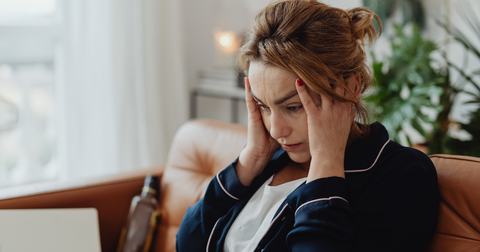1. Be ‘mindful’ and breathe deeply: Research found that yoga was associated with reduced blood pressure, resting heart rate, fasting blood glucose, and cholesterol compared to those who didn’t practice yoga. These are not only important physical measures of stress, but also when looking at other health conditions such as heart health and diabetes.
2. Try herbal supplements such as ashwagandha: For almost 3000 years the ashwagandha root has been used as a traditional Indian medicine to strengthens the nervous system. ‘Ashwagandha’ comes from the word ‘ashwa’, meaning horse, as it was believed that you would gain powers like that of a horse after consuming the root. Current scientists are also excited by this herb, as a 2024 meta-analysis of research on over 500 patients showed it has beneficial effects on stress.
TIP: Try Jamieson Ashwagandha
3. B vitamins and magnesium supplements can help to ensure you have enough of these essential daily nutrients:
-
- In a review of research on vitamin B supplements taken for at least 4 weeks, supplementing was shown to provide a reduction in stress. Researchers concluded that “the review provides evidence for the benefit of B vitamin supplementation in healthy and at-risk populations for stress.”
- TIP: Try Jamieson Vitamin B
- “Studies have shown that magnesium supplementation can decrease the concentration of serum cortisol, a stress hormone, resulting in calming the central nervous system and potentially better sleep.”
- TIP: Try 100% Pure Magnesium Bisglycinate
- Stress is known as a common cause of insomnia. Ultimately, when you're stressed, falling asleep can be a challenge, and then a restless night can leave you feeling even more tense and on edge the next day, creating a vicious cycle. This is why it is important to address both concerns.
- In a review of research on vitamin B supplements taken for at least 4 weeks, supplementing was shown to provide a reduction in stress. Researchers concluded that “the review provides evidence for the benefit of B vitamin supplementation in healthy and at-risk populations for stress.”
4. Melatonin is a hormone naturally produced by our body which helps with our sleep and wake cycles. The pineal gland in our brain makes melatonin when it becomes darker in the evening, allowing us to feel sleepy at ‘nighttime’. However, with an increased amount of artificial light in our homes particularly the blue light from electronic devices, our body may not be making enough.
- In a review of 23 randomly controlled trials on supplemental melatonin, researchers concluded “that melatonin had a significant effect on sleep quality.”
- Consistent bed and wake-up times
- Turn off all electronics at least 1 hour before bed
- A dark bedroom using either blackout blinds or a sleep mask



